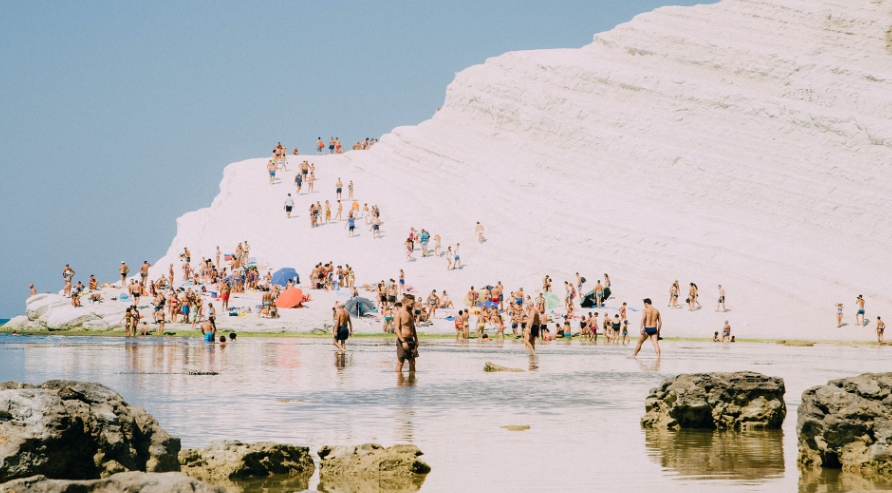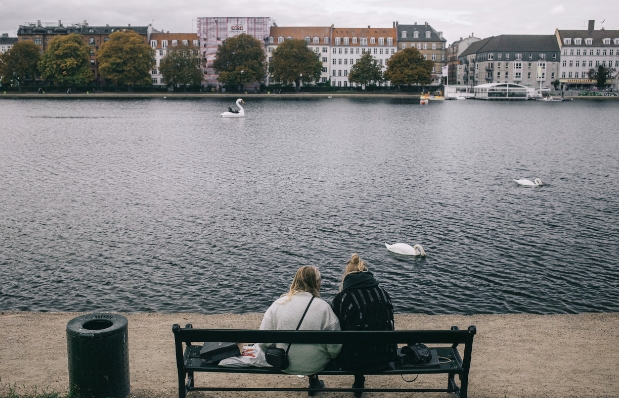Is Europe Getting Hotter? Could Summer Trips “Up North” Become the Usual?
This summer has marked record-breaking temperatures and widespread wildfires across southern Europe and beyond. Global headlines are now pondering the best destinations to beat the heat this summer.
Will Greece, Italy, and Spain maintain their popularity as summer getaways, or will travelers opt for cooler alternatives to heading “south”? Could we witness a surge in tourists flocking to the Baltic Sea beaches? Are summer trips “up north” poised to become the new standard? Discover how climate change is altering the global travel landscape.
Where to Find Relief from the Heat?
Discovering an ideal location free from both excessive heat and rainfall seems like a challenging task at the moment (even with ChatGPT’s assistance). However, some cities manage to strike a reasonable balance: the temperatures are comfortable, and while rain is a part of life, it’s nothing out of the ordinary.
These are the destinations that experts are placing their bets on. It’s highly probable that in the coming years, they will feature prominently on must-visit lists for the summer season. Here’s a list of the ten “(almost) ideal” places:
- Amsterdam, Netherlands;
- Copenhagen, Denmark;
- Oslo, Norway;
- Reykjavik, Iceland;
- Helsinki, Finland;
- Bergen, Norway;
- Salzburg, Austria;
- Lauterbrunnen, Switzerland;
- Galicia, Spain;
- Chamonix, France.
Estonia and Poland are making their mark in this rating as well. Analysts have noted that the number of foreign visitors to these countries in the first half of the year has surpassed previous records. For instance, in Poland, there were 7 million tourists compared to 6.7 million in 2019, and this upward trend is expected to continue.
According to tourism expert Simon Calder, the beaches along the North and Baltic Seas are expected to see increased crowds next summer due to the trends observed this year.
What’s Happening?

During July, wildfires erupted in Rhodes, Corfu, Evia, and the Boeotia region near Athens. Due to the extreme heat, the fires rapidly spread, necessitating the swift evacuation of people from resort areas.
A similar situation unfolded in Sicily, Italy, with the capital of the island, Palermo, experiencing severe impacts. Fires also engulfed areas surrounding the cities of Catania, Trapani, Siracusa, and Messina. Airports remained closed for several days, and some settlements experienced interruptions in electricity and water supply. Both locals and tourists were evacuated from affected areas.
Forest fires ignited in regions just a few kilometers away from the popular Croatian city of Dubrovnik, near the capital of Portugal, and on the popular Spanish islands of Gran Canaria and Tenerife. Later, the flames extended into France, specifically in the Pyrenees region. Furthermore, the issue is not limited to Europe, as devastating fires also occurred in Hawaii, with a notable impact on the island of Maui.
Certain travelers found themselves compelled to alter their travel arrangements. For those situated in perilous zones, evacuations have been underway. Regrettably, there have been reports of injuries and fatalities, resulting in significant losses.
What measures are authorities taking?
A portion of the fires has been successfully extinguished, while rescue teams continue to battle the remaining blazes. Nevertheless, the process of restoring these affected regions will be a lengthy one.
Airlines and travel agencies are accommodating travelers by allowing them to change their reservations without additional charges or providing refunds for disrupted vacations. For those evacuated from Rhodes, a complimentary week-long “vacation” in the summer of 2024 has been promised, although there is uncertainty about whether people will choose to take advantage of this offer as sentiments are evolving.
What are the experts, travel agents, and tourists saying?

In late July, a significant online debate erupted concerning the potential transformation of travel patterns in response to heatwaves and wildfires, with questions about whether change was inevitable. The discussion was triggered by a tweet from German Health Minister Karl Lauterbach, who was vacationing in Tuscany. Lauterbach remarked:
“The heat here is astonishing,” adding, “If this continues, such vacation destinations may not have a sustainable future. Climate change is ravaging southern Europe, and an era is drawing to a close.”
Italians swiftly reacted to the statement, with some humorously saying, “Thank you for choosing Italy, just like many other Germans,” while others assured that “even with this level of heat, it will still be challenging to secure a vacation spot in Sicily and beyond.” Opinions within the community were polarized.
Media outlets and tourist associations initiated surveys on the matter. While some tourists expressed their determination to continue visiting their beloved destinations in Greece, Spain, and Italy, others conveyed their willingness to explore alternative options and embrace the cooler climates of Northern Europe next summer.
Experts anticipate gradual shifts in travel trends. It’s likely that summer vacations will prioritize countries with more pleasant climates, particularly during the peak months of July and August. However, top destinations for spring and fall seasons are expected to maintain their popularity. Some countries may seize the opportunity to diversify from the traditional “summer beach resort” image and promote year-round tourism.
Another factor that challenges the global shift in established travel patterns is the contrast in weather events. While wildfires ravaged southern regions, the rest of Europe experienced heavy rainfall, leading to severe flooding in countries such as Norway, Sweden, Denmark, and Slovenia, with significant consequences.
Whether travelers favor warmth or wetness, only time will reveal the future of travel. However, one thing is certain: our approach to travel will not be the same as before.

